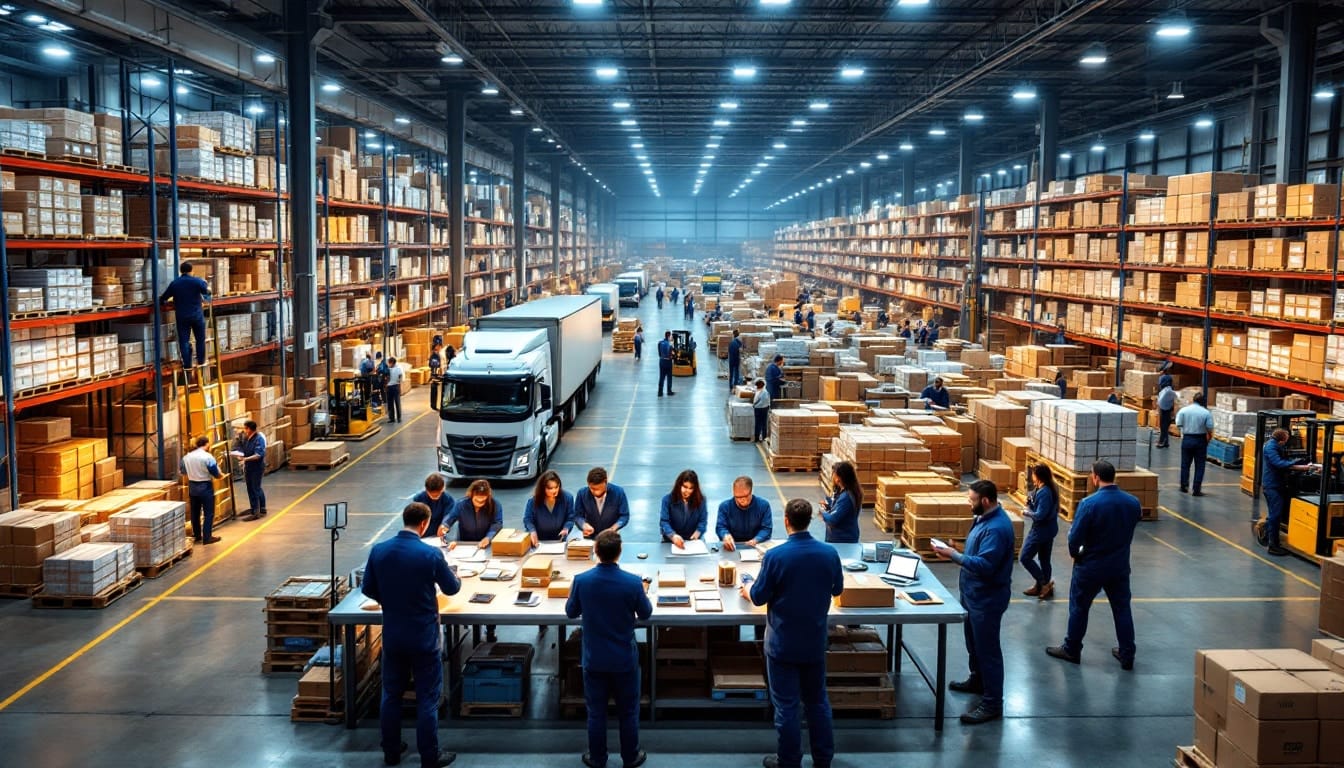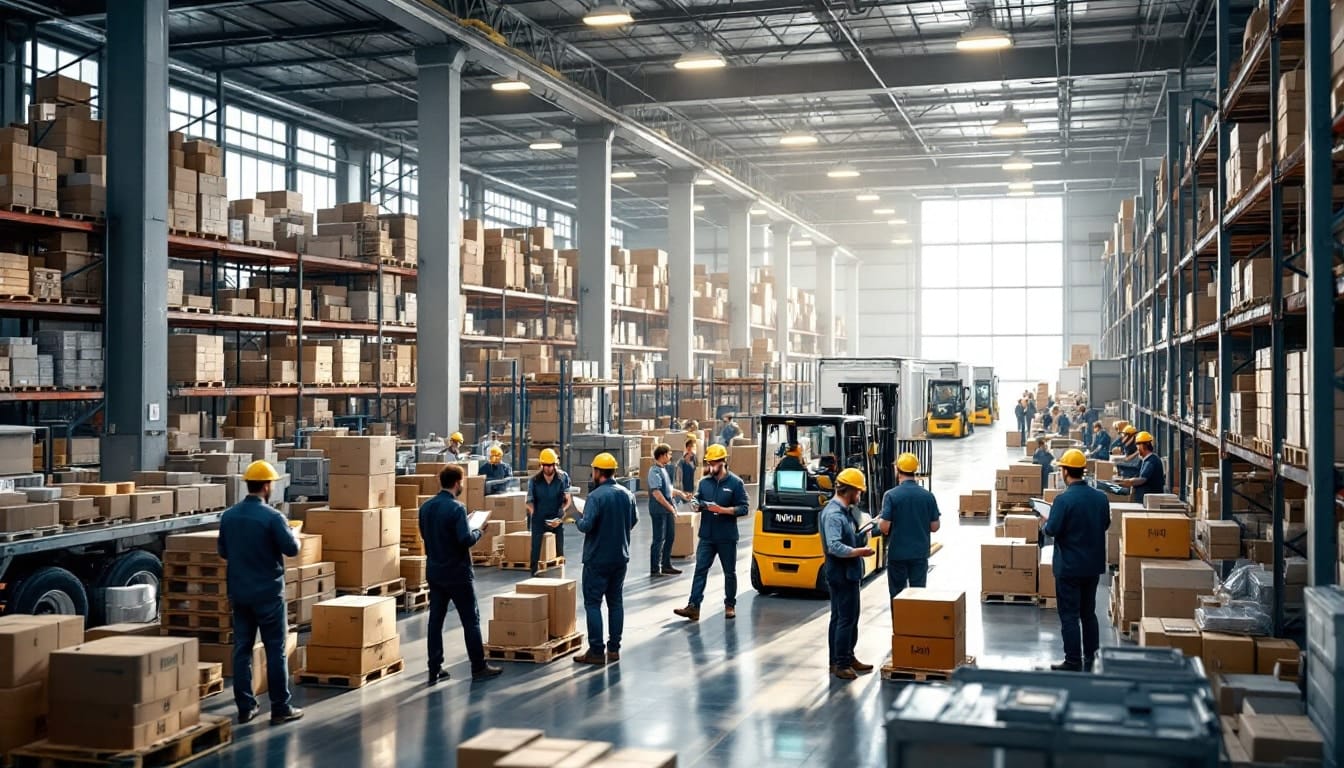The supply chain allows for the efficient management of flows of products and information from suppliers to end customers. This complex network encompasses a variety of activities ranging from the procurement of raw materials to the distribution of finished products. Essential to the competitiveness of companies, it consists of processes such as production, storage, and transportation. With the emergence of Industry 4.0 and automation, the supply chain is constantly evolving, integrating new technologies to meet modern challenges while optimizing its operations to support global economic development.
Table des matières
ToggleUnderstanding the Supply Chain: An Essential Glossary
The Supply Chain is defined as the set of processes involved in the production and distribution of goods and services, from the procurement of raw materials to the delivery of finished products to consumers. This complex network enables companies to turn an idea into concrete reality by optimizing each step to minimize costs and maximize efficiency.
Mastering the Supply Chain and its structures is crucial for ensuring a company’s competitiveness. Numerous challenges arise, particularly the need to ensure resilience against economic and geopolitical uncertainties. As the question of whether to adapt or perish becomes critical, automation emerges as an unavoidable response to the uncertain future that lies ahead. One of the major advantages of the digital transformation of the Supply Chain, known as Supply Chain 4.0, lies in its ability to integrate technologies such as artificial intelligence and blockchain to boost overall efficiency.
To be effective in the field of Supply Chain, it is essential to understand its fundamental principles. It consists of a framework made up of several key components: procurement, production, storage, transportation, and distribution. Each component plays a crucial role in ensuring the smooth progression of the production cycle to its final objective, namely to satisfy the end customer.
An essential aspect of the Supply Chain is Supply Chain Management. This involves the strategic management of flows, including the flow of products, the flow of information, and human resources. When well-directed, these flows help optimize processes and improve organizational performance. Transparency in the logistics chain, another crucial component, offers many benefits, such as risk reduction and improved collaboration between business partners.
There are five major trends in the Supply Chain, identified by Deloitte: digitization, automation, predictive analytics, integration of emerging technologies, and sustainability. In the era of Industry 4.0, these technologies become fundamental to anticipating consumer needs and ensuring that companies remain competitive.
One of the flagship events dedicated to the sector, the 3rd Edition of the International Supply Chain Meetings (RISC), provides a platform to discuss the latest innovations and best practices in this dynamic field. These meetings are prime opportunities for Supply Chain professionals to exchange insights on current challenges and explore new opportunities.
The sustainable Supply Chain is a concept gaining importance as companies seek to reduce their environmental impact. This involves integrating environmentally friendly practices at every step of the supply chain, thus ensuring a more sustainable business model for the future.
Finally, Supply Chain 4.0, through automation and artificial intelligence, opens new perspectives by transforming the manufacturing industry. By adopting these innovations, companies can significantly improve their agility and efficiency while responding to the new challenges of a globalized and highly competitive market.

“`html
FAQ: Understanding the Supply Chain
Q: What is the Supply Chain?
A: The Supply Chain, or supply chain, refers to the entirety of processes involved in the production and distribution of goods and services, from the procurement of raw materials to the delivery of finished products to consumers.
Q: What are the main components of the Supply Chain?
A: The main components of the Supply Chain include raw materials, production, storage, transportation, and final distribution.
Q: Why is the Supply Chain important for the competitiveness of companies?
A: The Supply Chain is crucial because it covers the majority of the production costs of a product, which accounts for about 60% to 80% of the overall cost. Effective management of these flows can greatly enhance a company’s competitiveness.
Q: What role does automation play in the future of the Supply Chain?
A: Automation is essential for the future of the Supply Chain as it enhances efficiency, accuracy, and speed of processes, while reducing costs and human errors.
Q: What are the main challenges of the Supply Chain today?
A: Challenges include resilience to disruptions, adapting to new technologies, sustainable management, and optimizing costs while meeting customer expectations.





